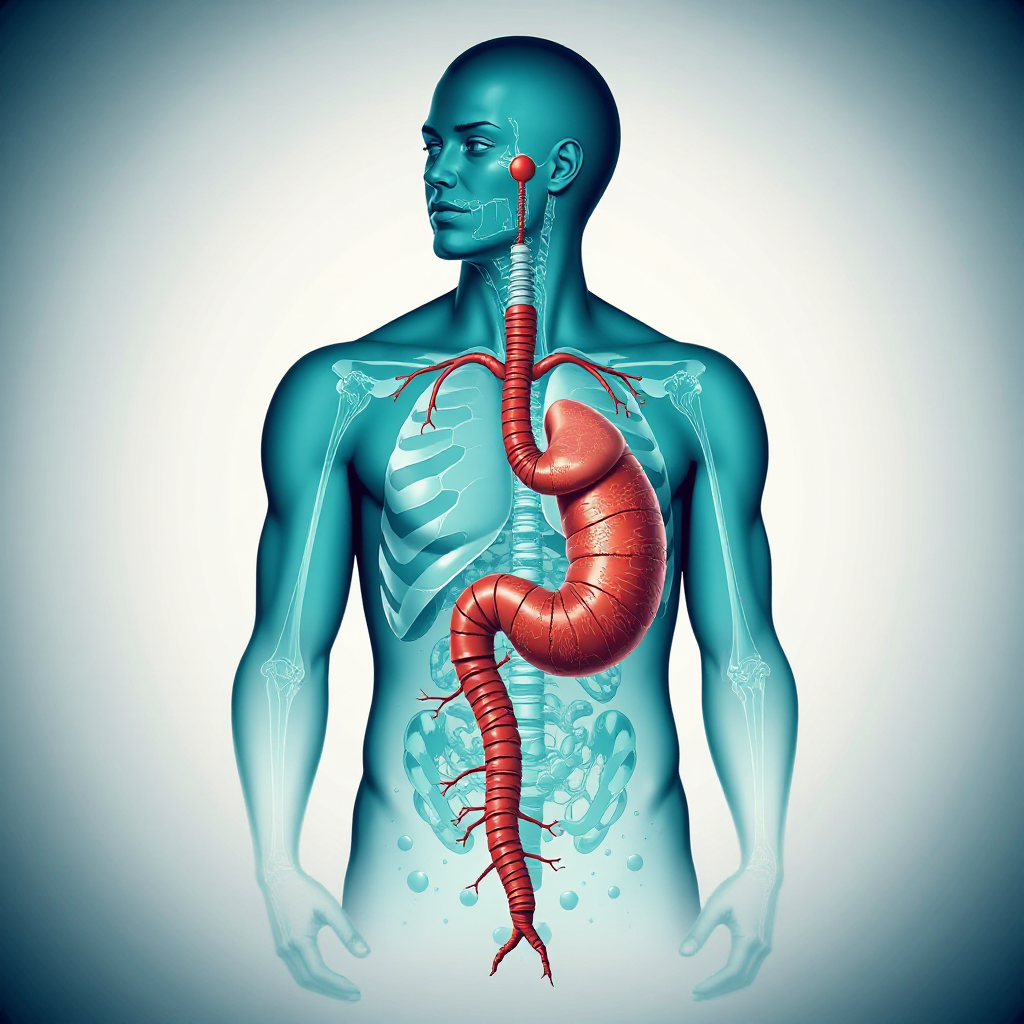What Are the Symptoms of Appendix Cancer

Appendix cancer can present symptoms that often resemble other conditions, making it challenging to identify early. You might experience abdominal pain, bloating, or changes in bowel habits. Some individuals notice a sudden loss of appetite or unexplained weight loss. In women, ovarian masses or symptoms similar to ovarian cysts may appear. Other signs include persistent discomfort in the lower right abdomen, nausea, or even hernia-like symptoms. These symptoms can vary widely, but recognizing them promptly helps ensure timely medical evaluation.
Early detection plays a vital role in improving outcomes. If you notice persistent or unusual symptoms, consult a healthcare provider.
Key Takeaways
Look for early signs like stomach pain, bloating, or bathroom changes. These can help find problems early.
Losing weight without trying or feeling very tired might mean appendix cancer. Watch for sudden changes in weight or energy.
Women should notice if they have ovary lumps or pelvic pain. These might be connected to appendix cancer. Regular check-ups with a gynecologist are helpful.
See a doctor if you have bad stomach pain, fever, or throwing up. These might be serious warning signs.
Regular health check-ups and talking about strange symptoms with your doctor can help find problems early and improve treatment.
Common Symptoms of Appendix Cancer

Abdominal Pain
Persistent or severe pain, often in the lower right abdomen.
You may experience abdominal pain as one of the earliest signs of appendix cancer. This pain often occurs in the lower right side of your abdomen and can feel sharp or persistent.
The pain may resemble appendicitis, making it difficult to distinguish between the two conditions.
In some cases, the discomfort may extend to the pelvic region, becoming more intense over time.
If you notice persistent or worsening pain in this area, it’s important to seek medical advice promptly.
Pain that may resemble appendicitis or other gastrointestinal issues.
The pain caused by appendix cancer can mimic other gastrointestinal problems. This similarity often leads to misdiagnosis. You might feel discomfort that worsens after eating or during physical activity.
Note: Persistent abdominal pain should never be ignored, especially if it disrupts your daily life.
Bloating and Abdominal Distention
Unexplained bloating or a feeling of fullness in the abdomen.
Bloating is another common symptom of appendix cancer. You might feel an unusual sense of fullness in your abdomen, even without eating a large meal.
This bloating often results from fluid buildup in the abdominal cavity.
You may also experience discomfort in the lower right section of your abdomen.
Swelling caused by fluid buildup (ascites) in the abdominal cavity.
Fluid accumulation, known as ascites, can cause noticeable swelling in your abdomen. This condition may make it difficult for you to digest food properly, leading to further discomfort.
Changes in Bowel Habits
Persistent diarrhea, constipation, or alternating patterns.
Appendix cancer can disrupt your normal bowel habits. You might notice persistent diarrhea or constipation that doesn’t resolve with dietary changes.
Alternating patterns of diarrhea and constipation are also common.
These changes may occur gradually, making them easy to overlook at first.
Unusual or irregular bowel movements over time.
Unusual gastrointestinal symptoms, such as irregular bowel movements, can also signal appendix cancer. If you notice these changes persisting over time, it’s essential to consult a healthcare provider.
Tip: Keeping track of your bowel habits can help you identify any unusual patterns early.
Unexplained Weight Loss
Sudden, significant weight loss without changes in diet or activity.
Unexplained weight loss can be an early sign of appendix cancer. You might notice a sudden drop in weight without altering your eating habits or physical activity. This weight loss often occurs because the cancer affects your body's ability to absorb nutrients properly.
You may feel weaker or more fatigued as your body struggles to maintain energy levels.
This symptom can develop gradually, making it easy to overlook at first.
Pay attention to any unexpected changes in your weight, especially if they happen over a short period.
Often accompanied by fatigue or reduced appetite.
Weight loss caused by appendix cancer often comes with other symptoms like fatigue or a reduced appetite. You might feel tired even after resting or find it difficult to eat your usual portions. These signs indicate that your body is under stress and needs medical evaluation.
Tip: Keep track of your weight and energy levels. If you notice persistent changes, consult a healthcare provider promptly.
Ovarian Masses in Women
Tumors or masses detected during gynecological exams.
In women, appendix cancer can sometimes present as ovarian masses. These masses are often discovered during routine gynecological exams or imaging tests. You might experience symptoms like pelvic pain or bloating, which can mimic ovarian cancer.
Sometimes mistaken for ovarian cancer but linked to appendix cancer.
The overlap in symptoms between ovarian and appendix cancer can make diagnosis challenging. Many patients report vague symptoms that persist for months, leading to delays in identifying the true cause. Careful evaluation through medical history, physical exams, and imaging is essential to differentiate between benign and malignant masses.
Diagnostic Challenge | Description |
|---|---|
Symptom Overlap | Symptoms of ovarian cancer, such as pelvic pain and bloating, can overlap with those of appendix cancer, complicating diagnosis. |
Vague Symptoms | Many patients present with nonspecific symptoms that can lead to delays in diagnosis, as these symptoms may persist for months. |
Evaluation Criteria | The need for careful evaluation through history, physical examination, and imaging to differentiate between benign and malignant masses. |
If you experience persistent pelvic pain or bloating, discuss these symptoms with your doctor. Early detection can improve outcomes significantly.
Advanced or Rare Symptoms of Appendix Cancer

Appendicitis-Like Symptoms
Sudden, severe abdominal pain with fever.
You might experience sudden and intense abdominal pain accompanied by fever. This pain often feels sharp and localized, making it hard to ignore. These symptoms can appear unexpectedly and may require immediate medical attention.
Often misdiagnosed as acute appendicitis.
Appendicitis-like symptoms sometimes lead to a diagnosis of appendix cancer. However, experiencing appendicitis does not always mean you have cancer. In many cases, cancer is only discovered after an appendectomy performed to treat appendicitis. If you experience these symptoms, it’s essential to consult a healthcare provider for further evaluation.
Note: Severe abdominal pain and fever should never be ignored. Early medical intervention can help identify the underlying cause.
Ascites (Fluid Accumulation)
Swelling in the abdomen due to fluid buildup.
Fluid accumulation, known as ascites, can cause noticeable swelling in your abdomen. This condition often results from cancer spreading to the abdominal lining. You might feel discomfort or tightness in your abdomen as the fluid builds up.
May cause discomfort, bloating, and difficulty breathing.
Ascites can make you feel bloated and may even affect your ability to breathe comfortably. The pressure from the fluid can compress your diaphragm, leading to shortness of breath. If you notice persistent abdominal swelling or difficulty breathing, seek medical advice promptly.
Gastrointestinal Obstruction
Blockage in the intestines leading to severe pain and vomiting.
Appendix cancer can sometimes cause a blockage in your intestines. This obstruction may result in severe abdominal pain, nausea, and vomiting. You might also experience an inability to pass gas or stool, which can worsen the discomfort.
Requires immediate medical attention.
A gastrointestinal obstruction is a medical emergency. If you experience these symptoms, you should seek immediate care. Delaying treatment can lead to serious complications, including infection or tissue damage.
Tip: Pay attention to sudden changes in your digestive system. Early recognition of symptoms can prevent complications.
Abdominal Mass or Hernias
Noticeable mass or lump in the abdomen
You might notice a mass or lump in your abdomen as appendix cancer progresses. This mass often feels firm and may cause discomfort or pain. It can develop due to tumor growth or swelling in the abdominal cavity.
Doctors use several diagnostic tools to identify abdominal masses. These include:
CT scans: These provide detailed images of your chest, abdomen, and pelvis. Radiologists interpret these scans to detect tumors or abnormalities.
MRI scans: These are particularly useful for outlining tumors but require specific protocols for accuracy.
Diagnostic laparoscopy: This involves inserting a small camera into your abdomen to observe the area directly. It allows doctors to examine the mass closely but must be performed carefully to avoid spreading cancer cells.
Blood tests: Certain tumor markers, like CEA or CA-125, can indicate cancer activity. However, these markers are not always reliable.
Diagnostic Method | Description |
|---|---|
CT scan | Detects cancer stage and spread to other organs. |
MRI | Outlines tumors but takes longer than CT scans. |
Diagnostic laparoscopy | Directly observes the abdominal cavity but requires expertise. |
Blood tests (tumor markers) | Identifies cancer activity but lacks universal accuracy. |
If you feel a lump in your abdomen, consult a healthcare provider promptly. Early detection improves treatment outcomes.
New hernias caused by pressure or swelling in the abdominal area
Appendix cancer can also lead to hernias. These occur when pressure from swelling or fluid buildup pushes tissue through a weak spot in your abdominal wall. You might notice a bulge or protrusion, especially when coughing or lifting heavy objects.
Hernias caused by appendix cancer often require medical evaluation. Imaging tests like CT or MRI scans can help confirm the diagnosis. If left untreated, hernias may worsen or cause complications like pain or obstruction.
Tip: Pay attention to any unusual lumps or bulges in your abdomen. Early medical intervention can prevent further complications.
When to Seek Medical Advice
Persistent or Unusual Symptoms
Symptoms that last for weeks or worsen over time.
You should pay attention to symptoms that persist or worsen over several weeks. These may include bloating, pain in the lower right abdomen, or changes in bowel habits. Persistent nausea, vomiting, or indigestion could also signal a problem. Loss of appetite or feeling full after eating little might indicate that something is wrong. If you notice any of these symptoms, it’s important to consult a healthcare provider.
Any combination of the symptoms listed above.
Experiencing multiple symptoms together can be a warning sign. For example, bloating combined with abdominal pain or changes in bowel function may suggest a more serious issue. New hernias or ovarian masses in women could also point to underlying conditions like appendix cancer. Keeping track of your symptoms and sharing them with your doctor can help with early diagnosis.
Tip: Don’t ignore symptoms that disrupt your daily life. Early medical advice can make a significant difference.
Emergency Situations
Severe abdominal pain, fever, or vomiting.
Severe abdominal pain, especially when accompanied by fever or vomiting, requires immediate attention. These symptoms could indicate appendicitis or an intestinal obstruction, both of which are medical emergencies. If left untreated, these conditions can lead to serious complications.
Signs of intestinal obstruction or appendicitis.
Signs of an intestinal obstruction include severe pain, nausea, and an inability to pass gas or stool. These symptoms often require urgent care. Similarly, appendicitis-like symptoms, such as sharp pain in the lower right abdomen, should not be ignored. In some cases, these symptoms may reveal appendix cancer during diagnostic procedures.
Alert: Seek emergency care if you experience sudden, intense pain or other severe symptoms.
Routine Health Monitoring
Importance of regular check-ups and discussing concerns with a doctor.
Routine health check-ups play a vital role in detecting appendix cancer early. During these visits, you can discuss any unusual symptoms with your doctor. Regular evaluations increase awareness and allow for timely diagnostic tests.
Early detection through imaging or diagnostic tests.
Imaging tests like CT scans, MRI scans, or ultrasounds can help identify abnormalities early. Diagnostic procedures, such as biopsies or colonoscopies, provide more detailed information. Although there is no FDA-approved screening test for appendix cancer, these methods can detect signs of the disease. Early detection improves treatment outcomes significantly.
Note: Regular health monitoring ensures that potential issues are addressed before they become severe.
Recognizing appendix cancer symptoms early can significantly improve outcomes. For example, smaller tumors that haven’t spread have a nearly 100% five-year survival rate, while advanced cases drop to approximately 32%.
Tumor Size and Spread | 5-Year Survival Rate |
|---|---|
Smaller than 3 cm, not spread | Nearly 100% |
Smaller than 3 cm, spread to lymph nodes | Around 78% |
Larger than 3 cm | Around 78% |
Spread to other parts of the body | Approximately 32% |
You can raise awareness by watching for persistent symptoms, advocating for diagnostic tests, and sharing information through social media or patient advocacy groups. Misconceptions, such as confusing symptoms with appendicitis or other gastrointestinal conditions, often delay diagnosis. Staying informed and proactive ensures timely medical attention and better health outcomes.
Tip: Share your knowledge about appendix cancer to help others recognize its symptoms early.
FAQ
What is appendix cancer, and how common is it?
Appendix cancer is a rare type of cancer that starts in the cells of the appendix. It accounts for less than 1% of all gastrointestinal cancers. You might not hear about it often because it’s so uncommon.
Can appendix cancer be detected early?
Yes, early detection is possible but challenging. Symptoms often mimic other conditions like appendicitis. Regular check-ups and imaging tests can help identify it early, especially if you experience persistent abdominal pain or bloating.
Is appendix cancer treatable?
Treatment depends on the stage and type of cancer. Surgery is the most common option. In advanced cases, chemotherapy or targeted therapies may be necessary. Early diagnosis improves the chances of successful treatment.
Are there risk factors for appendix cancer?
Doctors don’t know the exact cause, but some factors may increase your risk. These include a family history of cancer, certain genetic conditions, or chronic inflammation in the gastrointestinal tract.
How can I differentiate appendix cancer symptoms from other conditions?
Appendix cancer symptoms often overlap with conditions like appendicitis or ovarian cancer. Persistent or worsening symptoms, such as abdominal pain, bloating, or unexplained weight loss, should prompt you to consult a doctor for further evaluation.
Tip: Keep a symptom diary to track changes and share it with your healthcare provider.
See Also
Exploring Anal Cancer: Symptoms and Underlying Causes
Key Information on Symptoms of Adrenocortical Carcinoma
Insights into Adrenocortical Adenoma: Symptoms and Treatments

